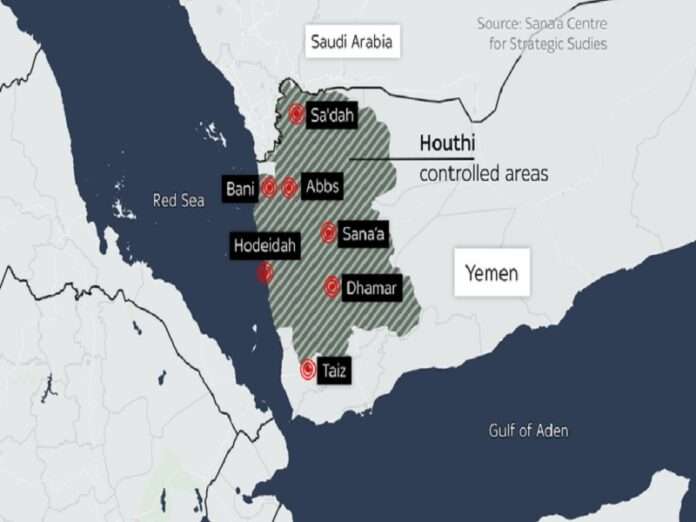Many in the Alt-Media Community (AMC) were misled by top influencers into thinking that Russia supports the Houthis after falsely believing that this is due to Moscow wanting to asymmetrically punish the EU for its sanctions regime, out of solidarity with Palestine, and/or to embroil the US in another war. Russian Permanent UN Representative Vassily Nebenzia’s earlier condemnation of this group’s attacks against civilian vessels and his country’s decision to abstain from the latest UNSC Resolution debunk this.
He even warned prior to the last-mentioned vote that the West would likely exploit it as faux legal cover for striking the Houthis, yet he still abstained instead of vetoing that document for the reasons explained in the preceding hyperlinked analysis. Nebenzia then elaborated on the reasons why Russia was against what he himself predicted they’d ultimately do during the UNSC meeting that it called for on Friday. Readers can review the legal arguments that he made against their strikes here.
They boil down to blatant violations of the UN Charter and other norms of international law, and his country is concerned that the latest Israeli-Hamas war might further spread throughout the broader region if the US-led West continues exploiting recent events for that purpose. Nevertheless, Russia’s response to any more anti-Houthi strikes or attacks against other countries in this part of the world on similar such pretexts will remain limited to rhetoric for the three reasons that’ll now be explained.
To begin with, Russia can’t realistically punish its rivals for their rampant violations of international law and the instability that they’re sowing throughout this broader region without sparking World War III, which it has no appetite to attempt. Secondly, even in the political fantasy that it decides to clandestinely support the Houthis, it has no logistical means to transfer arms to them. This leads to the final point regarding the priority that it places on ties with Saudi Arabia and the UAE over that Yemeni rebel group.
Those two Gulf Kingdoms became some of Russia’s most important partners in the world after the onset of its special operation and the West’s subsequent sanctions regime, with Saudi Arabia helping Russia manage the oil market via the OPEC+ mechanism and the UAE now being its top Arab trade partner. It’s no small wonder then that President Putin took a brief trip to those two last month to meet with their leaders, which rankled the West after proving that their attempted containment of Russia totally failed.
Although Saudi Arabia is still pursuing peace talks with the Houthis to some capacity despite the ceasefire having long expired, it still considers that group to be a national security threat. The same goes for the UAE, whose South Yemeni allies hate the Houthis with a passion since they stand in the way of their plans to revive this Old Cold War-era state’s independence. None of them would look kindly upon Russia arming the Houthis even if it had the political will and logistical ability to do so, which it doesn’t.
With these policy imperatives in mind, nobody should expect anything other than rhetoric from Russia no matter what happens in the Gulf of Aden-Red Sea (GARS) region. It’s unwilling to spark World War III over the Houthis, lacks the logistical ability to clandestinely support them even if it wanted to, and pragmatically prioritizes ties with the wealthy Gulf Kingdoms over that impoverished Yemeni rebel group. Anyone who claims otherwise is maliciously setting others up for inevitable disappointment.







